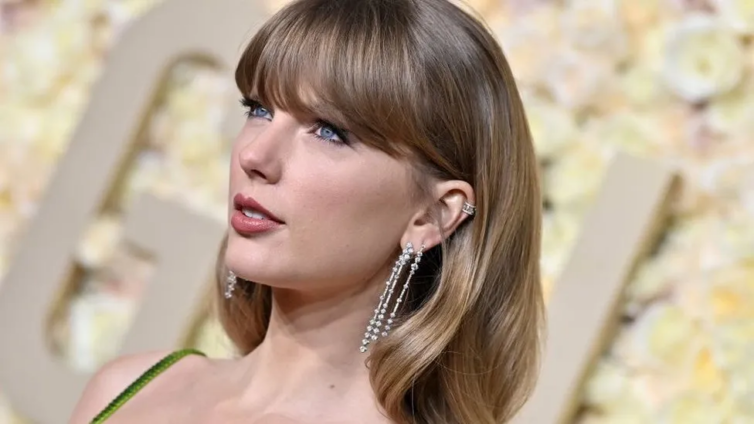Social media platform X has blocked searches for Taylor Swift after explicit AI-generated images of the singer began circulating on the site.
In a statement to the BBC, X's head of business operations Joe Benarroch said it was a "temporary action" to prioritise safety.
When searching for Swift on the site, a message appears that says: "Something went wrong. Try reloading."
Fake graphic images of the singer appeared on the site earlier this week.
Some went viral and were viewed millions of times, prompting alarm from US officials and fans of the singer.
Posts and accounts sharing the fake images were flagged by her fans, who populated the platform with real images and videos of her, using the words "protect Taylor Swift".
The photos prompted X, formerly Twitter, to release a statement on Friday, saying that posting non-consensual nudity on the platform is "strictly prohibited".
"We have a zero-tolerance policy towards such content," the statement said. "Our teams are actively removing all identified images and taking appropriate actions against the accounts responsible for posting them."
It is unclear when X began blocking searches for Swift on the site, or whether the site has blocked searches for other public figures or terms in the past.
In his email to the BBC, Mr Benarroch said the action is done "with an abundance of caution as we prioritise safety on this issue".
The issue caught the attention of the White House, who on Friday called the spread of the AI-generated photos "alarming".
"We know that lax enforcement disproportionately impacts women and they also impact girls, sadly, who are the overwhelming targets," said White House press secretary Karine Jean-Pierre during a briefing.
She added that there should be legislation to tackle the misuse of AI technology on social media, and that platforms should also take their own steps to ban such content on their sites.
"We believe they have an important role to play in enforcing their own rules to prevent the spread of misinformation and non-consensual, intimate imagery of real people," Ms Jean-Pierre said.
US politicians have also called for new laws to criminalise the creation of deepfake images.
Deepfakes use artificial intelligence to make a video of someone by manipulating their face or body. A study in 2023 found that there has been a 550% rise in the creation of doctored images since 2019, fuelled by the emergence of AI.
There are currently no federal laws against the sharing or creation of deepfake images, though there have been moves at state level to tackle the issue.
In the UK, the sharing of deepfake pornography became illegal as part of its Online Safety Act in 2023.
Latest Stories
-
Trump bickers with Powell over Fed renovation costs
22 minutes -
‘We will not default’ – Ato Forson assures bondholders as GH¢20bn DDEP payment plan unfolds
31 minutes -
Take time to get VAT reforms right before scrapping COVID-19 levy – Prof. Asuming
47 minutes -
France will recognise Palestinian state, Macron says
50 minutes -
Foreign Affairs Ministry denies issuing Ghanaian passports to non-citizens
2 hours -
Uganda to host Asia/Africa play-off for 2027 Rugby World Cup
2 hours -
Landslide destroys farmlands and livelihoods in Santrokofi, sparks famine fears
2 hours -
UHAS Dean urges strategic role for laboratory managers in 24-hour health system reform
2 hours -
Society of Medical Laboratory Managers chair calls for inclusion in core health management
2 hours -
Mahama promises to renovate Atta Mills Presidential Library
2 hours -
My sister inspired me to start a fashion business – Diana Hamilton
3 hours -
SIC Insurance PLC donates 50 laptops to KNUST
3 hours -
I turned down specific brands because of my faith – Diana Hamilton
3 hours -
‘Those who validate ghosts will pay’ – Finance Minister declares war on public sector payroll fraud
3 hours -
GN Bank Chicago declared safe and sound by U.S. regulator
3 hours

